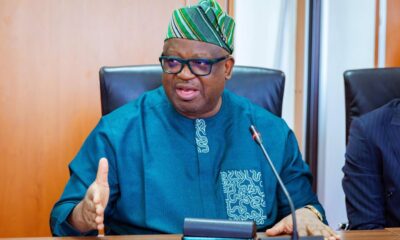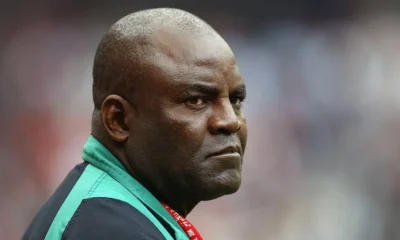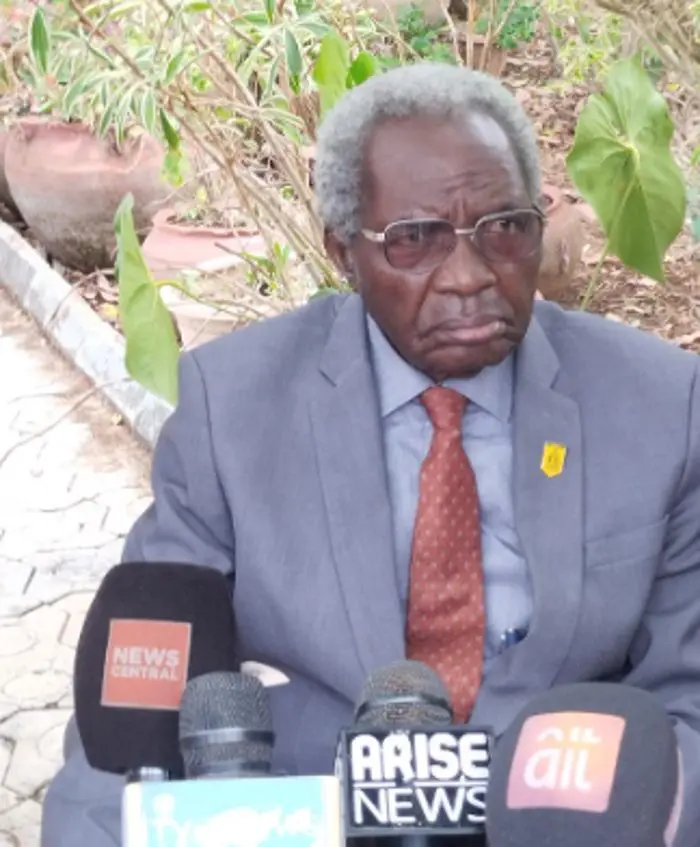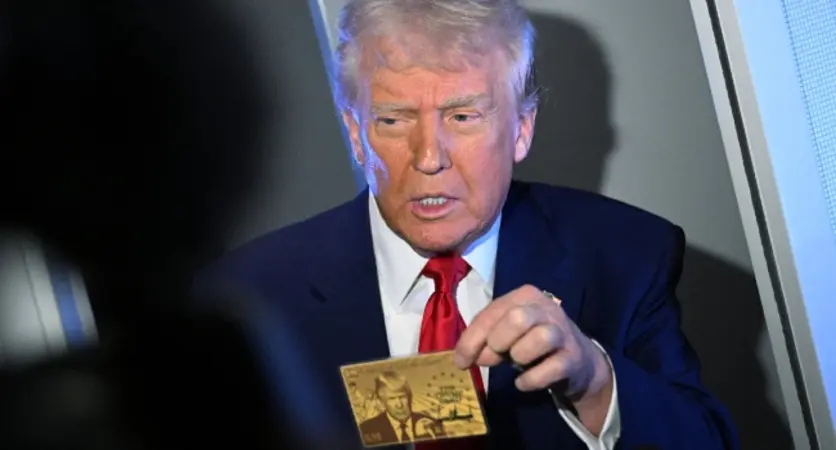Columns
6 Things to Know About Nigeria’s New Presidential Jet, From “Previous Users” And “Age” To “Cost”
Published
8 months agoon
By
Ekwutos Blog6 Things to Know About Nigeria’s New Presidential Jet, From “Previous Users” And “Age” To “Cost”
Happenings Aug 23 Shelmani
Nigeria is third user of new presidential jet, here are six (6) things to know about the 15 year old Airbus A330-200.
An Airbus A330-200 this week joined the Presidential Air Fleet (PAF), barely a month after the Nigerian House of Representatives’ Committee on National Security and Intelligence recommended procuring a new one due to high maintenance costs and operational issues with the current fleet.
Here are six (6) things to know about the the latest addition to the Presidential Air Fleet.
1) Tinubu’s First Trip Aboard New Presidential Jet
The new presidential jet, the Airbus A330 registered with 5N-FGA was used for the very first time by President Bola Ahmed Tinubu on Monday August 19th for his trip to Paris, France.
2) Replaced 19-year-old Boeing B737-700
It replaces the 19-year-old Boeing B737-700 (BBJ) registered with 5N-FGT, which was handed over to the FG in 2005 during the administration of President Olusegun Obasanjo.
3) It Is A 15 year old Aircraft
The latest addition isn’t brand new so to speak as Nigerian Government is the third user. It was originally delivered in 2009 to Saudi Arabia’s Midroc Aviation, who operated it for 12 years before it was acquired by AMAC Aerospace in April 2021.
4) To Save On Maintenance, Fuel Costs
According to the Special Adviser to the President on Information and Strategy, Bayo Onanuga, the A330 features modern avionics and communications systems, adding that it will save on maintenance and fuel costs.
5) Cost : N150 Billion Naira ($150 million).
While the presidency is mute on how much was paid for the presidential jet, local newspapers alleged that the FG paid $100m for it and splashed another $50m to retrofit it with state-of-the-art gadgets.
6) Cost Of Brand New Model
While FG reportedly spent about $150 million to buy and upgrade the new presidential jet to its taste, a brand new Airbus A330-200 is listed for $238.5 million while the 330neo costs in the region of $290 million to $300 million.
You may like


Rivers: Court adjourns suit challenging appointment of LG administrators


We don’t want to depend on China in case of war – Trump


Ebonyi state Lawmaker Demands Restoration Of Abakaliki Street that was changed to Club road In Awka


Plateau attacks: Mutfwang convenes security meeting


NFF denies owing late Christian Chukwu amid social media claims


VP KASHIM SHETTIMA APPLAUDS GOV ENO’S INVESTMENT IN HUMAN CAPITAL DEVT.
Columns
Plateau killings: Declare killer herdsmen terrorists – Ex-military administrator tells FG
Published
3 days agoon
April 12, 2025By
Ekwutos Blog
A former military administrator of Plateau State, Real Admiral Bitrus Atukum (rtd) has called on the Federal Government to declare the Fulani herdsmen attacking communities in the state as terrorists.
He said the target of the assailants is to keep the citizenry under perpetual poverty.
Atukum equally accused the killer herdsmen of “economic sabotage”, noting that they attack mostly when the planting and harvest seasons are approaching.
He equally observed that another reason for the attacks is purely land grabbing.
The retired army officer lamented that government is fighting insecurity on the Plateau with kid gloves.
Atukum’s comments followed recent killings in Bokkos LGA of Plateau State.
Ekwutosblog recalls that over 50 people were recently killed, thousands displaced and their means of livelihood destroyed in some communities of Bokkos LGA.
“The endless attacks on villages by the Fulani is a strategic act of terrorism, as such government should note this and label them as terrorists who are not only at war with armless and harmless civilians, but the country as a whole,” he said.
Atukum called on the citizens to defend themselves against the aggressors to protect their ancestral lands.
The former military administrator also decried last Tuesday’s press briefing held in Kaduna by one Garba Abdullahi Mohammed, a leader of Fulani groups.
“All these details given at that press briefing can be verified; government has relevant information as to where it can start the investigation.
“You cannot allow people under the pretext of the freedom of speech to be making this kind of statements, few days after the killings in Bokkos. These are unprovoked attacks!
“In the past, they used to say farmer-herder clash. How can you have clash in someone’s bedroom?
“Government is fighting this insecurity on the Plateau with kid gloves.
“I would have expected that on the Plateau, where you have hills and small mountains that are being inhibited by these Fulani herdsmen; what is the difficulty in ordering the army to and fish them out there?
“These people come down from these hills, commit havoc and disappear, and that is where they hide their weapons.
“So I just believe in addition to what the government is doing, they can do more,” he stressed.
Columns
Montreal police arrested seven people who are believed to have ties to an Italian Mafia clan on Wednesday morning.
Published
4 days agoon
April 11, 2025By
Ekwutos Blog
Six men, ages 34 to 59, and a 44-year-old woman were arrested, said the Service de police de la Ville de Montréal (SPVM). Around 40 officers were involved in the operation.
The arrests, which mark the final phase of the Americano Project, were made in the boroughs of LaSalle and Verdun, as well as in Brossard.
ADVERTISEMENT
“It’s going to hurt traditional Italian organized crime in this area,” Francis Renaud, head of the SPVM’s organized crime unit, told reporters on Wednesday morning.
“We’re used to seeing traditional Italian organized crime in the Saint-Léonard area … but in LaSalle, it’s a well-hidden stronghold.”
Who are the suspects
The seven individuals, whom Renaud believes to be the “most influential people” in LaSalle, operated under the radar, he said. They were very well-known by the LaSalle community and some of them owned businesses.
Large-scale drug trafficking of cocaine was their specialty, said Renaud, and their team would sell drugs to resellers. Their clients were from all over the province.
Francis Renaud
Francis Renaud is the head of Montreal police’s organized crime unit. (Ivanoh Demers/Radio-Canada)
Renaud added that the individuals collaborated with other known criminal organizations, groups that would’ve previously been considered “enemies.”
ADVERTISEMENT
“In LaSalle, it’s pretty special,” said Renaud.
“The Italian organized crime [there] are not afraid to mix with other organized crime that we know, the bikers, the Irish, to make their business go on. And they’re getting along. That’s the special effect of LaSalle.”
Various charges
The suspects will appear at the Montreal courthouse by the end of the day.
Five of them are facing charges of committing an offence for the benefit of a criminal organization, drug trafficking and possession of substances for the purpose of trafficking, according to the SPVM.
Previous phases of the criminal investigation, which began in August 2023, led to the seizure in January and May 2024 of more than 32 kilograms of cocaine, over $2.2 million in cash, four kilograms of crystal methamphetamine, 12 firearms and several other items of evidence, said the police.
Three individuals who were previously arrested as part of the investigation have already appeared in court and were released. Renaud said they will appear again in court “probably with slightly more severe charges” than the initial charges they were facing.He explained that Wednesday’s operation included wiretaps, video surveillance and investigators working day and night for two years.
Renaud said “of course” the organization will find replacements for those arrested, which will force his unit to launch another investigation.
“It’s our job to monitor the intel and to see [who] is coming in to take the place and do the exact same thing again, and see you guys in a year or two,” said Renaud with a smile.
Columns
Scores forced to leave US as Trump administration revokes student visas
Published
5 days agoon
April 10, 2025By
Ekwutos Blog
The administration of President Donald Trump has revoked the visas of hundreds of international students, forcing many to exit the US within days.
Some students reportedly received unexpected texts or emails, while others discovered their cancellations through the Federal Student Exchange and Visitor Information System.
Universities across states like California, Colorado, Ohio, and Florida reported cases, though many declined to share details due to student privacy.
According to immigration experts, the scale is unprecedented
“I’ve been doing this for 25 years and I’ve never seen 300 students lose their visas. It’s all political,” immigration attorney Len Saunders said.
Ekwutosblog reports that some visa cancellations appear linked to minor issues like traffic violations or roommate disputes, while others may be tied to participation in pro-Palestinian protests.
Meanwhile, Secretary of State Marco Rubio claimed responsibility for revoking no fewer than 300 visas, calling the students “lunatics” for their activism.
“Every time I find one of these lunatics, I take away their visas,” he said.
The students affected are not being detained but told to leave the country within seven days.
This development has sparked protests, including at the University of Arizona and Tufts University, where Turkish student Rumeysa Öztürk was detained despite holding a valid visa.
Colorado State University confirmed six student visa revocations, while the University of Massachusetts-Amherst said five students were affected.

Rivers: Court adjourns suit challenging appointment of LG administrators

We don’t want to depend on China in case of war – Trump

Ebonyi state Lawmaker Demands Restoration Of Abakaliki Street that was changed to Club road In Awka
Trending

 Trending6 months ago
Trending6 months agoNYA demands release of ‘abducted’ Imo chairman, preaches good governance
- Business6 months ago
US court acquits Air Peace boss, slams Mayfield $4000 fine

 Politics6 months ago
Politics6 months agoMexico’s new president causes concern just weeks before the US elections
- Entertainment6 months ago
Bobrisky transferred from Immigration to FCID, spends night behind bars
- Entertainment6 months ago
Bobrisky falls ill in police custody, rushed to hospital

 Politics6 months ago
Politics6 months agoRussia bans imports of agro-products from Kazakhstan after refusal to join BRICS

 Politics6 months ago
Politics6 months agoPutin invites 20 world leaders
- Politics1 year ago
Nigerian Senate passes Bill seeking the establishment of the South East Development Commission.

